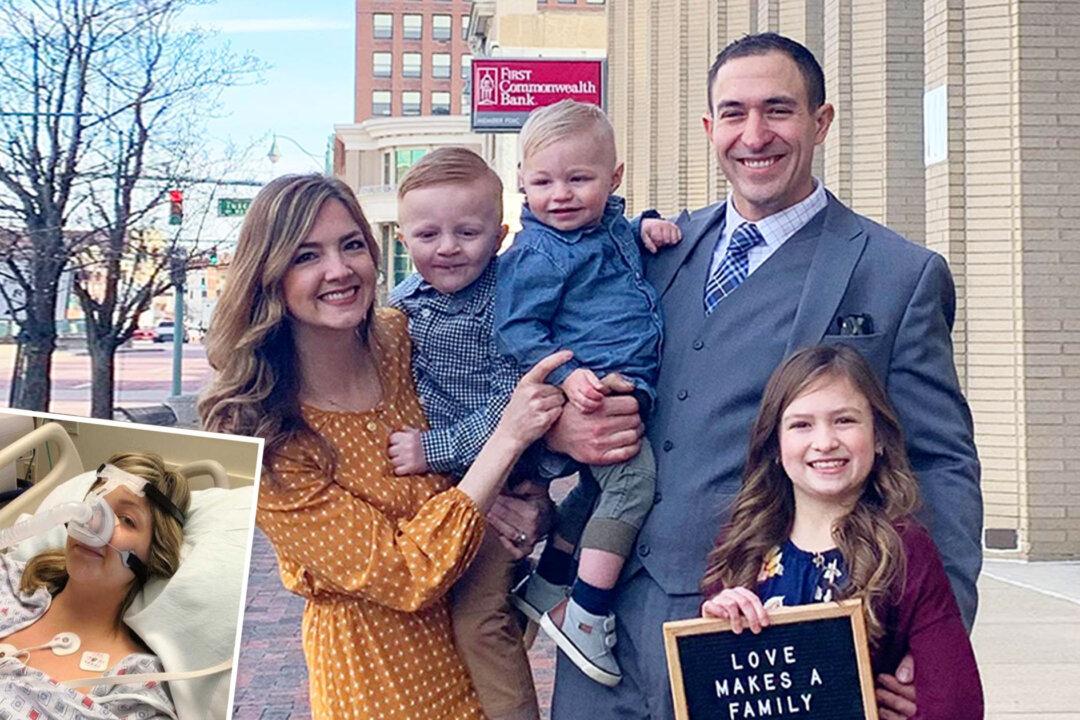Amid the joy of bringing her newborn daughter home from the hospital, a mom from Northeast Ohio fell gravely ill. In a life-saving surgery, she lost her uterus and the chance to give birth to more children. However, her faith in God led her to find another route: she became a foster mom, and her dream of having a bigger family came true.
Lisa Robertson of Hartville, married her husband, JJ, in 2011 after a “whirlwind romance.” They were shocked and excited to become pregnant with their first child, a girl, just six weeks later.





